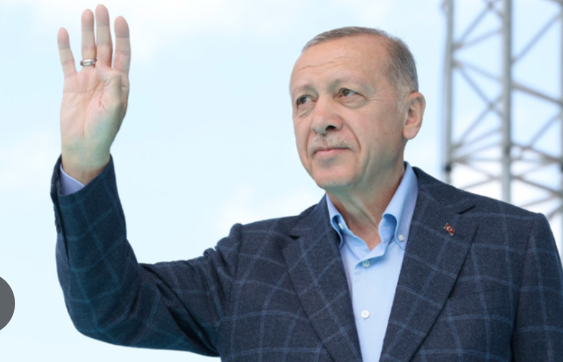I spend a good portion of my working day reading on Emerging Markets and am constantly surprised that in the context of politics the Turkish opposition finds so little space. I suppose not only Turkey investors, but the international press, too, has given up on Turkey two dozen or so fractious and feeble opposition parties to ever beat Erdogan. Yet, this time will be different. Our beloved Great Chief Erdogan finds himself in a pickle, which he can only resolve by negotiating with the leader of the main opposition party, CHP, Mr Ozgur Ozel.
The choice facing Erdogan is simple: He is a lame duck in his second term, and is not eligible to run again in the next elections, scheduled for May 2028. He has in the past toyed loudly with the idea of retirement, but these usually coincided with election campaigns and when he and his party were drooping in the polls. If he intended to retire at the end of his current term, he would have already promoted one his three presumptive successors, namely his son Bilal Erdogan and his two-sons-in-law Messrs. Berat Albayrak (former economy czar and arguably the most detested member of the Erdogan family among AKP rank-and-file) and Selcuk Bayraktar who heads Turkey’s military drone industry, to a Cabinet post to “test the waters”.
Of course, laws always have loopholes. In terms of Erdogan’s eligibility there are two. First, a new constitution which automatically grants him an extra term, as per precedent established by High Election Council. The second is Turkish parliament voting for early elections. Here is a nuance, which must be noted carefully. The president has the authority to dissolve the assembly any time he so wishes, and take the nation to the polls, but that does not grant the office holder an extra term.
The problem with both approaches is that Erdogan’s AKP and the nationalist MHP chaired by his trusted sidekick Mr Devlet Bahceli have only 325 seats, give or take a few, while either legislation mentioned above requires at least 360 votes. Give and take a few? Yeap, with numerous independent congresspeople in the seats, who swap parties like I do my underwear, seat numbers are not fixed. In fact over the summer draft season, AKP added two, and CHP one.
Erdogan’s messengers have reportedly approached two spin-off parties to join AKP, namely DEVA governed by Ali Babacan and Gelecek by Ahmet Davutoglu, both former estranged AKP heavy weights, with no luck.
Frankly, none of the opposition parties want a new Constitution, which will only serve to increase Erdogan’s power and help Bahceli completely disenfranchise the Kurdish equality movement.
Neither do the smaller parties in the assembly want early elections, because unless they strike alliance deals with one of the two bigger parties, their chances of making it to the next parliament are slim to none, given the qualifying hurdle is 7% of the national vote. The only exception is Erdogan’s rival from his own camp, ultra-Islamist New Welfare, which unfortunately for Erdogan hates him, because he betrayed the legendary Islamist leader Mr Necmettin Erbakan, whose son heads New Welfare.
In a nutshell, the only combination in the parliament which secures early elections is AKP and CHP. This is why Turkey watchers must now pay close attention what its leader Ozel is saying. He sent an ultimatum to Erdogan: CHP will only concede to early elections if they are held by November 2025, or earlier.
At this point AKP and MHP ignore CHP’s deadline because of their mistaken belief that if they issue a call to the ballot at any date, CHP will oblige. This is seriously bush-league level of strategizing, because the only thing that unites Turkey’s opposition parties from ultra-Islamist New Welfare to communist-ish Turkish Workers Party is their hatred of Erdogan. CHP can decline a call to elections after November 2025, and its constituency will not criticize the decision, if it gets rid of Erdogan permanently.
At the end, probably in the winter months Erdogan will smell the coffee and sit down with Ozel to bargain on the election date. I leave it to readers’ imagination the fate of Turkey’s austerity program if early elections are on the horizon.
By Atilla Yesilada, columnist and Turkey advisor to Global Source Partners.
